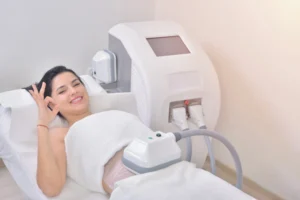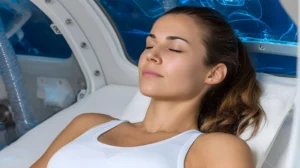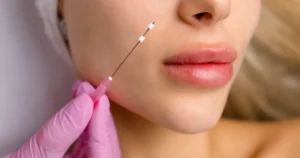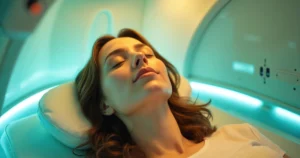Table Of Content
Anxiety affects how people think, feel, and function. For many, it interferes with daily activities, work, relationships, and sleep. The feelings of restlessness, worry, or panic are often challenging to control, leaving individuals feeling isolated or overwhelmed. At Embrace Wellness, we understand anxiety’s profound impact on your quality of life. We focus on practical, evidence-based approaches to support anxiety relief and improve overall well-being.
This blog will explain what anxiety is from a scientific perspective, how it affects the body and brain, and how modern anxiety treatment options are improving. We’ll also review the benefits of natural remedies for anxiety, mindfulness, and holistic anxiety treatment strategies that are making a difference for many people today, especially those seeking anxiety treatment in Bismarck, ND.
Understanding Anxiety: What Happens in the Brain and Body?
Anxiety is more than a mental state, as it is also a physical condition. When someone feels anxious, their brain triggers the body’s “fight or flight” response. This process begins in the amygdala, the part of the brain involved in emotional processing. As a result, the hypothalamus triggers the adrenal glands to produce stress hormones like cortisol and adrenaline. These chemicals increase heart rate, sharpen senses, and help the body respond to perceived danger.
While this stress response is helpful in real emergencies, in people with anxiety disorders, it can be activated in everyday situations that don’t pose a threat. Over time, chronic anxiety may overstimulate these brain pathways, making the symptoms feel persistent and difficult to control.
Common physical symptoms of anxiety include:
- Increased heart rate
- Shortness of breath
- Sweating or chills
- Muscle tension
- Stomach discomfort
- Fatigue
- Sleep disturbances
This combination of emotional and physical symptoms can disrupt many aspects of daily life and lead to ongoing stress, irritability, and avoidance behaviors.
Types of Anxiety and How They Present
Anxiety can take many forms, and it’s helpful to understand how the symptoms differ. Recognizing the type of anxiety can help guide the most effective treatment plan. Here are some of the most common categories:
Generalized Anxiety Disorder (GAD)
GAD involves ongoing and excessive anxiety about everyday events, even when there is no apparent reason. People may worry about health, finances, work, or family issues, and struggle to control these thoughts. It often leads to muscle tension, trouble sleeping, and feeling constantly “on edge.”
Social Anxiety Disorder
This form of anxiety causes intense fear of being judged or rejected in social situations. It may lead people to avoid conversations, public speaking, or gatherings, even if they want to engage with others.
Panic Disorder
Sudden episodes of intense fear or discomfort mark panic disorder. These panic attacks can occur without warning and may include symptoms like chest pain, dizziness, a racing heart, and a feeling of losing control.
Phobias
Specific phobias are fears of particular objects or situations, such as heights, flying, or needles. These fears go beyond usual caution and often cause people to avoid necessary activities or environments.
Identifying the specific anxiety disorder helps determine which anxiety treatment strategies will be the most helpful. Embrace Wellness evaluates each patient carefully to choose the right plan for their needs.
Advances in Anxiety Treatment: What’s Working Today?
Modern anxiety treatment combines different approaches to reduce symptoms and improve functioning. Many therapies are backed by decades of research and clinical success. Treatment choice depends on individual needs, the severity of symptoms, and personal preferences.
Cognitive Behavioral Therapy (CBT)
CBT is one of the most effective treatments for anxiety. It helps patients identify and change negative thought patterns and behaviors that cause anxiety. Individuals gain better control over their reactions and emotions by learning how to challenge these thoughts.
Medication Options
Medication is another option, especially for moderate to severe anxiety. The most commonly prescribed drugs are selective serotonin reuptake inhibitors (SSRIs), which help balance mood by increasing serotonin in the brain. Some patients benefit from serotonin-norepinephrine reuptake inhibitors (SNRIs) or other types of medications, depending on their symptoms.
Lifestyle and Behavioral Strategies
Behavioral changes can also support anxiety treatment. Regular exercise, healthy sleep habits, reduced caffeine intake, and balanced nutrition support a calmer nervous system. While these strategies don’t replace therapy or medication, they can increase the success of a treatment plan.
Embrace Wellness offers anxiety treatment programs that combine therapy, medication management, and lifestyle coaching and are tailored to each patient.
Exploring Natural Remedies for Anxiety and Holistic Approaches
Many patients seek additional support through natural remedies for anxiety. These options may appeal to those looking for a more holistic anxiety treatment plan. While not always a standalone solution, these strategies may be helpful as part of a broader care plan.
Herbal Supplements
Some people find relief using herbal supplements such as ashwagandha, valerian root, or chamomile. These herbs support a calmer mood, though individuals should always consult a healthcare provider before starting any supplements, especially if they take other medications.
Nutrition and Gut Health
Research continues to show a link between gut health and mood regulation. A diet rich in fiber, probiotics, and omega-3 fatty acids may support brain function and reduce inflammation, which could help with anxiety relief.
Acupuncture and Massage
Acupuncture and therapeutic massage are also gaining attention for their calming effects. These techniques help reduce physical tension and promote relaxation.
These natural remedies are often used in anxiety treatment programs that include professional support. At Embrace Wellness, our team considers all treatment preferences while building a plan that works for each person.
Anxiety Relief Techniques You Can Practice Daily
In addition to medical treatment, many individuals benefit from practicing self-care strategies that support emotional balance. These anxiety relief techniques can be used at home as part of a broader wellness plan.
Breathing Exercises
Slow, deep breathing helps calm the nervous system. One popular method is the 4-7-8 technique: inhale for four seconds, hold for seven seconds, and exhale slowly for eight seconds.
Physical Activity
Exercise helps release endorphins, which are natural mood boosters. Activities like walking, swimming, or cycling can reduce tension and improve sleep, both of which help manage anxiety.
Journaling
Writing down thoughts and feelings helps some people process stress and gain perspective. It may also help identify anxiety triggers, which can be addressed in therapy.
Healthy Sleep Habits
Sleep is critical for emotional regulation. Going to bed and waking up at consistent times, avoiding screens before bed, and creating a relaxing bedtime routine can improve sleep quality.
Daily techniques like these are often used alongside structured anxiety treatment plans at Embrace Wellness for better long-term results.
The Role of Mindfulness in Anxiety Treatment
Mindfulness practices have become an essential part of anxiety treatment. These strategies encourage people to focus on the present moment without judgment. By doing so, individuals become more aware of their thoughts and reactions and can respond more calmly to stress.
Mindfulness-Based Stress Reduction (MBSR)
MBSR is a structured program that teaches meditation and body awareness. Studies have shown it can reduce anxiety and improve quality of life. It is often used alongside therapy or medication.
Meditation and Guided Imagery
Daily silent or guided meditation can train the brain to stay focused and less reactive to anxious thoughts. Guided imagery uses calming visualizations to create a sense of peace and control.
Yoga and Movement-Based Mindfulness
Gentle yoga combines physical movement, breathing, and mindfulness. This practice supports both emotional and physical health and can be especially helpful for those who experience anxiety through physical symptoms like muscle tension.
At Embrace Wellness, we often recommend mindfulness for anxiety treatment as part of an integrated care plan, especially for patients interested in natural and holistic anxiety treatment options.
Choosing the Right Anxiety Treatment In Bismarck, ND
Finding the proper support is a key step toward managing anxiety. If you live in the Bismarck area, you can access anxiety treatment services that respect your needs. Embrace Wellness offers a compassionate and knowledgeable team that works with patients to create personalized plans.
Whether you’re exploring therapy, medication, mindfulness, or holistic care, you don’t have to face anxiety alone. We aim to support lasting wellness and help patients feel more in control of their emotional health.
If anxiety is affecting your life, there are effective options available. Getting help early can prevent symptoms from worsening and make daily life more manageable.
Conclusion
Anxiety affects many people, but it doesn’t have to take over your life. Thanks to advances in science and treatment, individuals now have more tools than ever to find relief and support. From cognitive behavioral therapy and medication to natural remedies for anxiety and mindfulness, today’s anxiety treatment options are flexible and individualized.
Embrace Wellness is here to help you take the next step. Our anxiety treatment programs are designed to support long-term well-being, helping you feel more balanced and confident.
Start Feeling Better – Schedule Now. Contact us today for more information. We’re here to help you find the right support and feel more like yourself again.







